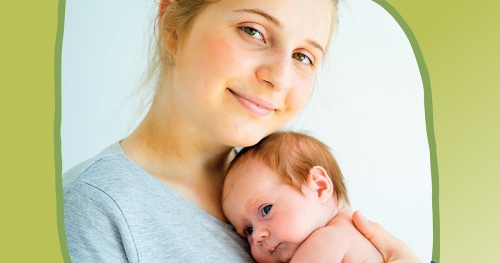The Mother and Infant Home Visiting Program Evaluation (MIHOPE)-Strong Start

Overview
Adverse birth outcomes result in significant emotional and economic costs for families and communities. One promising avenue for helping expectant women is home visiting programs, which work with parents to promote prenatal care and improve infant health. The Mother and Infant Home Visiting Program Evaluation-Strong Start (MIHOPE-Strong Start) will evaluate the effectiveness of two evidence-based home visiting models (Healthy Families America and Nurse-Family Partnership) at improving birth outcomes. It is a large-scale evaluation designed to investigate the features of local programs and of home visitation that lead to improved birth outcomes and reduced health care costs for expectant families enrolled in Medicaid or the Children’s Health Insurance Program (CHIP).
The evaluation is part of the Center for Medicare and Medicaid Innovation’s Strong Start for Mothers and Newborns initiative, which has cooperative agreements with three other types of prenatal interventions to improve birth outcomes.
MIHOPE-Strong Start is closely integrated with MIHOPE, a study of four evidence-based home visiting models funded by the Maternal, Infant, and Early Childhood Home Visiting (MIECHV) program. MIHOPE-Strong Start will include programs funded by MIECHV as well as those with other funding sources.
One-Page Project Description | Sign up for the MIHOPE/MIHOPE-Strong Start Newsletter
National home visiting model developers for Healthy Families America and Nurse-Family Partnership support MIHOPE-Strong Start and encouraged local program sites to participate in the study.
Additional Project Details
Agenda, Scope, and Goals
MIHOPE-Strong Start will provide federal and state policymakers better information about how evidence-based home visiting models affect preterm births and other birth outcomes. Information from MIHOPE-Strong Start is expected to inform policies and services for expectant families and to influence Medicaid reimbursement criteria.
MIHOPE-Strong Start will include up to 4,000 expectant mothers who are enrolled in Medicaid or CHIP. The study is taking place across 17 states, including those involved in MIHOPE where Healthy Families America and Nurse-Family Partnership models are operating.
MIHOPE-Strong Start is part of the Strong Start for Mothers and Newborns initiative. The overall goals are to determine whether home visiting programs improve birth outcomes and reduce health care costs in the child’s first year. To accomplish this, the study includes:
-
An impact analysis to measure what difference home visiting programs make in maternal prenatal health, health care use, preterm births and other birth outcomes, and infant health and health care use.
- An implementation analysis that will describe the families who participate and examine how the program models operate in their local and state contexts.
Design, Sites, and Data Sources
MIHOPE-Strong Start, like MIHOPE, will use a random assignment research design, with part of the sample assigned to a home visiting program and part assigned to a control group. The study expands on MIHOPE in several ways:
-
MIHOPE is operating in 12 states; MIHOPE-Strong Start will include those 12 states as well as 5 additional states.
-
Families recruited for MIHOPE will be expecting a baby or have a child up to 6 months old; MIHOPE-Strong Start is targeting expectant mothers who are up to 32 weeks pregnant and enrolled in Medicaid, given the study’s focus on birth outcomes.
-
MIHOPE will assess the effects of the programs on a variety of child and parent outcomes; MIHOPE-Strong Start will focus on prenatal health and birth outcomes.
Data will be collected from multiple sources, including surveys; state Medicaid, CHIP, and vital records databases; and program service records kept by local home visiting programs.
The research team will complete enrollment of families into the study in September 2015. Three annual reports will be produced, followed by a final report. The first annual report was published December 2013 and the second January 2015.
Featured Work
Final Implementation and Impact Findings from the Mother and Infant Home Visiting Program Evaluation-Strong Start







